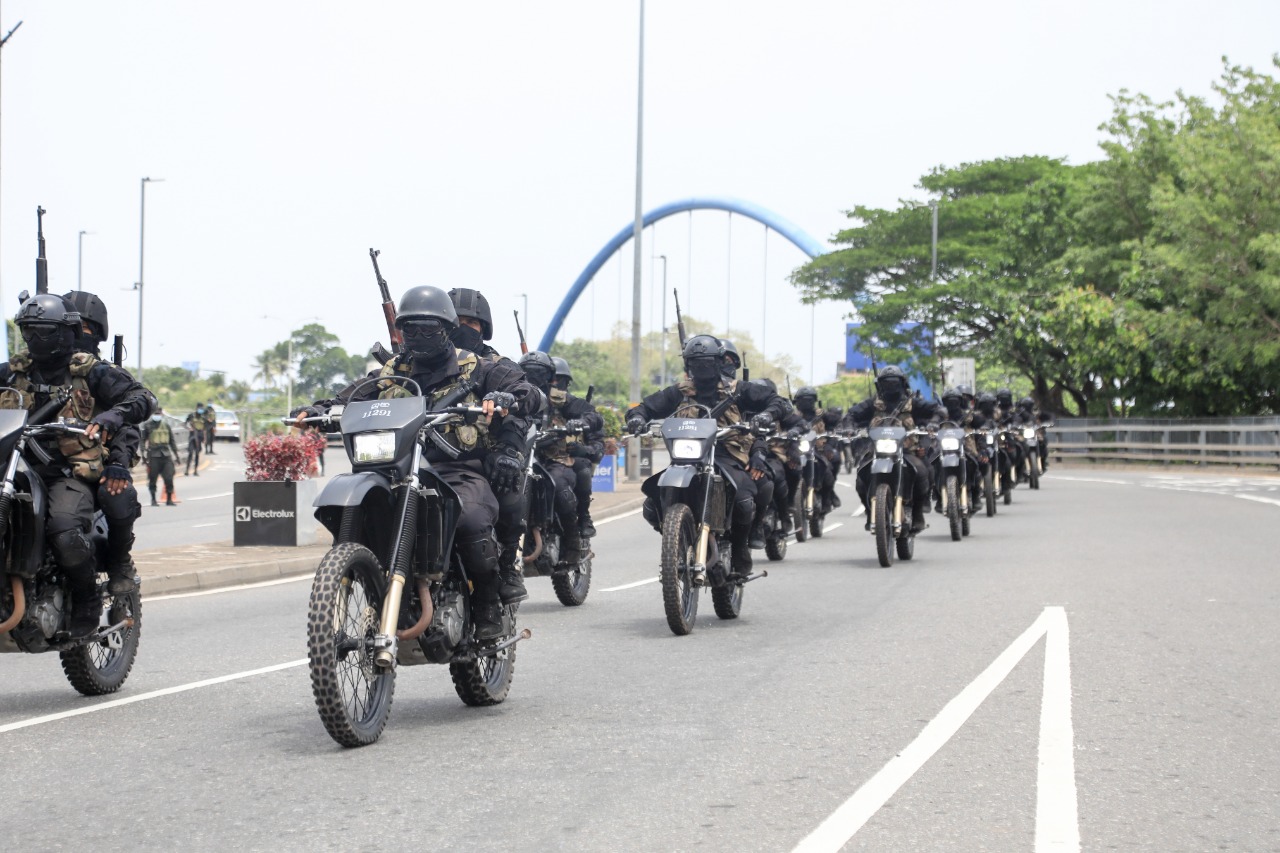
In a press release Amnesty International has condemned the recent implementation of emergency regulations and shooting orders in Sri Lanka.
The international human rights organization has called on Sri Lankan authorities to “take immediate steps to respect, protect and fulfill the human rights of peaceful protesters.”
Police negligence at Temple Trees
On 9 May peaceful demonstrations in front of the Presidential Secretariat turned violent when pro-government supporters attacked demonstrators. According to reports, the Sri Lankan police did little to protect peaceful protesters.
South Asia Regional Director at Amnesty International, Yamini Mishra, states that “the attacks look like a deliberate decision by the Police to allow pro-government groups to physically assault peaceful protesters.” Mishra has called on state authorities to conduct a “prompt, thorough, impartial, independent, effective and transparent investigation into the reports of violent attacks on peaceful protesters.”
The violence across the South has left 9 people dead and over 200 people injured.
Shooting orders
On 10 May the Defence Ministry instructed the Sri Lankan armed forces to shoot anyone “looting public property or causing harm to others.”
Amnesty International slammed the shooting orders stating that such orders provide the military with a “license to kill”. Amnesty has emphasized that “violent mobs should be contained; however lethal force must not be the first resort.”
Emergency Regulations
On 6 May, President Gotabaya Rajapaksa announced a state of emergency and imposed backdated Emergency Regulations that extended powers to the police and military. Amnesty has urged authorities to avoid “using the state of emergency as a pretext to curb the rights of peaceful assembly and freedom of expression.”
The use of emergencies to justify the violation of human rights is not unprecedented in Sri Lanka. The state has previously used the Covid-19 pandemic to disrupt protests organized by Tamil families of the disappeared.
Amnesty denounced the Emergency Regulations citing the lack of due process safeguards. Civilians arrested whilst the Regulations are in effect are denied “the right to be informed of the reason for arrest” as well as the “issuance of an arrest receipt at the time of arrest informing family where they would be detained.” Sri Lanka has a history of enforced disappearances, particularly in the North-East.
Additionally, the Regulations extend powers to the President allowing him to “shut down public processions, restrict access to public spaces, restrict the right to freedom of expression including the right to information, freedom of movement and peaceful assembly.”
Despite the authoritarian nature of the Emergency Regulations, President Rajapaksa claimed in an address to the country on 11 May that he is working towards empowering the parliament and curbing presidential powers.
Under the Regulations, state authorities are permitted to use armed force against anyone who fails to comply with orders. Furthermore, “persons authorized by the commanders of the armed forces are empowered by the Regulations to remove suspects from detention for a period of seven days at a time.” Amnesty has characterized these provisions as dangerous, raising concerns over the risk of abuse by authorities. Sri Lankan police and military have previously been accused of torturing and sexually assaulting detainees in the North-East.
Yamini Mishra states that “any move to impermissibly restrict human rights through sweeping emergency powers granted to law enforcement agencies including armed forces, - will lead to further repression.”
Amnesty International reiterates that Sri Lanka has a history of human rights violations that have yet to be addressed and has called for the cycle of human rights abuses to end.
See more from Amnesty International here.
We need your support
Sri Lanka is one of the most dangerous places in the world to be a journalist. Tamil journalists are particularly at threat, with at least 41 media workers known to have been killed by the Sri Lankan state or its paramilitaries during and after the armed conflict.
Despite the risks, our team on the ground remain committed to providing detailed and accurate reporting of developments in the Tamil homeland, across the island and around the world, as well as providing expert analysis and insight from the Tamil point of view
We need your support in keeping our journalism going. Support our work today.
For more ways to donate visit https://donate.tamilguardian.com.

